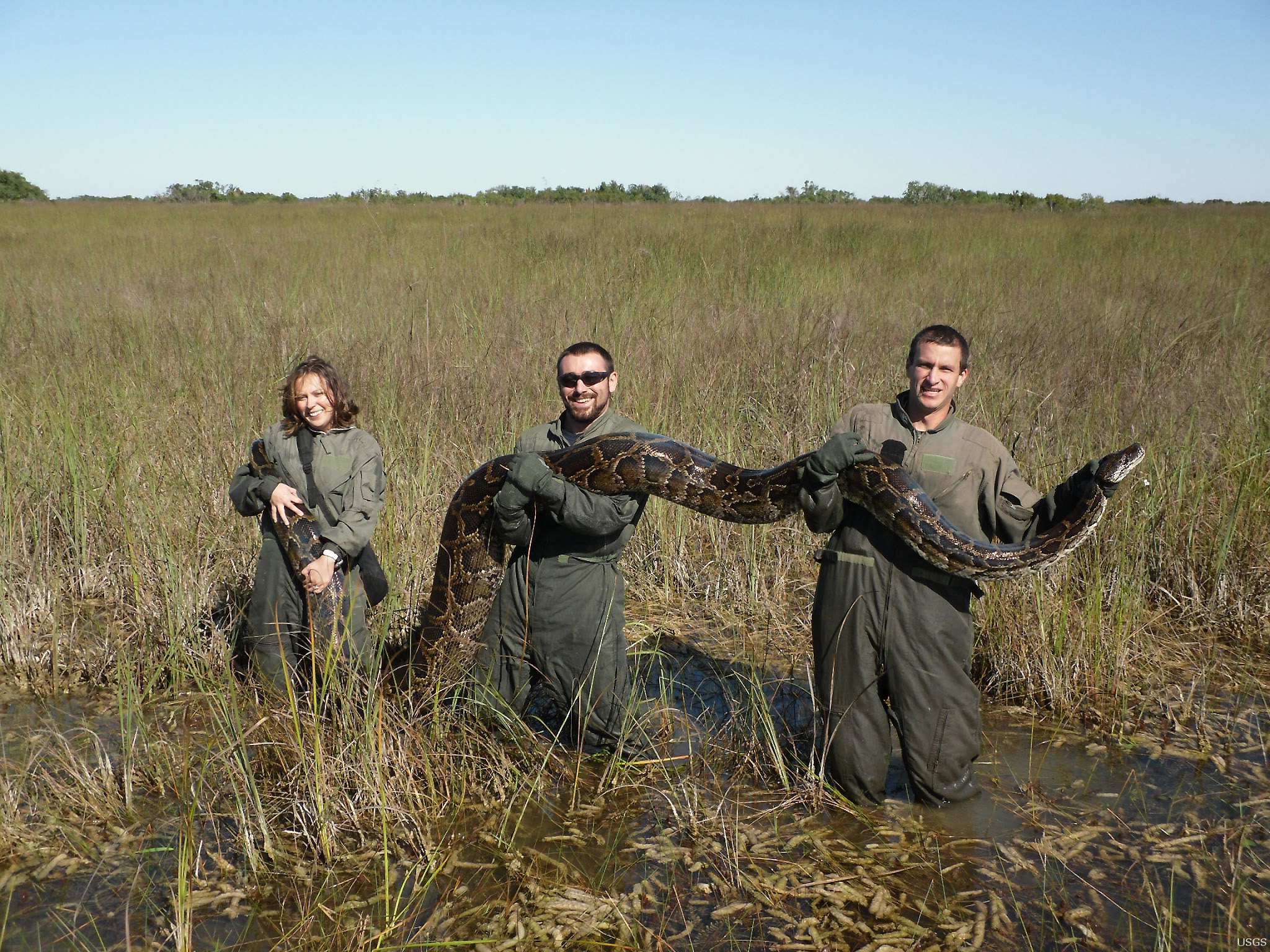Florida Sponsors Python Roundup

When encountering a snake powerful enough to eat a live alligator, most people would be tempted to run in the other direction.
But in the Florida Everglades, where the first-ever Python Challenge is scheduled to start this Saturday, hundreds of volunteers will be running after the invasive Burmese pythons that have wreaked havoc on the ecosystem, reports the Sun-Sentinel.
Sponsored by the Florida Fish and Wildlife Conservation Commission (FWC), the python hunt is the latest effort at controlling the python population, which has exploded in recent years and is wiping out native wildlife such as bobcat, foxes, raccoons and other animals.
The prize for the hunter who bags the largest Burmese python is $1,000; whoever brings in the most pythons over the 30-day contest will receive $1,500, according to Newsmax.
The FWC recommends killing pythons with a bullet or shotgun blast to the head, reports the Sun-Sentinel. Alternately, a captive bolt, which sends a metal shaft into the animal's brain, is also recommended. Decapitation is considered inhumane because the constrictors can survive several minutes after the head is separated from the body.
It's estimated that tens of thousands of pythons now inhabit the Everglades region. The constrictors, which are native to south Asia, are believed to have spread after being released by exotic pet owners in the 1990s. Though the animals are not considered a threat to humans, they have been known to consume predators as large as leopards and full-grown deer, according to the U.S. Geological Survey.
Follow LiveScience on Twitter @livescience. We're also on Facebook& Google+.
Sign up for the Live Science daily newsletter now
Get the world’s most fascinating discoveries delivered straight to your inbox.











